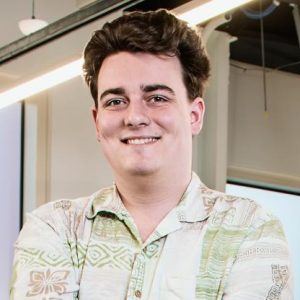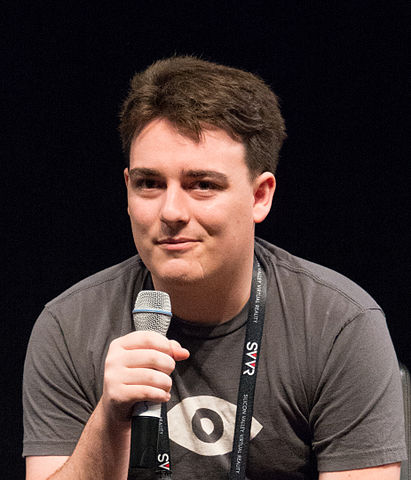Palmer Luckey : The Home School Kid Who Brought a Revolution in the Virtual Reality
An idea really can change your life, and if the idea is related to the technology, it is definitely going to turn your life around and give you many perks. The virtual reality was far from reality and only limited to the science-fiction stories and movies. But, a teenager brought the fiction into reality with its Virtual Reality head-mounted display Oculus Rift. Palmer Luckey is the mind behind such creative idea, that has changed the world of gaming and has opened new ways for Virtual Reality. The spotlight-shy engineer gives the credit to his home-schooling for his invention and the success that he earned at a young age.
Early Life
Palmer Luckey was born on 19 September 1992, in Long Beach, California, to parents Donald and Julie. His father was a salesman at a car dealership. Luckey did his initial schooling at his home, and it was her mother who tutored him. He grew an interest in the field of electronics and engineering at an early age and taught himself the same, through online classes. He grew up playing video games and watching sci-fi movies, developing an interest in virtual reality. During his childhood, he also went for the sailing lessons.

His passion for electronics engineering and virtual reality led him to try his hands on projects like coil guns, Tesla coils, and lasers. Also, based on the virtual reality, he created over 50 different head-mounted displays. One of his most expensive experiment was the development of a PC gaming rig using the elaborate six-monitor setup, costing him tens of thousands of U.S. dollars.
Along with the homeschooling, to earn the funding for his experiments, he worked at many places as a part-timer, including a groundskeeper job, youth sailing coach job, and a computer repair technician job. He also repaired and resold the old iPhones, earning at least US$36,000, from the business.
After completing the basic education, he took the community college courses at Golden West College and Long Beach City College, at the age of 14. He later took a journalism course in the California State University, Long Beach, and wrote for the student-run newspaper, Daily 49er, as an Online editor. At the same time, he started working as a part-time engineer at the Mixed Reality Lab (MxR) at the Institute for Creative Technologies and worked on a cost-effective virtual reality project.
Oculus Rift
Fascinated by electronics, lasers and virtual reality, Luckey at the age of 17, started experimenting with the head mounted virtual reality gears as he was not happy with his PC gaming rig. As it was not serving the purpose of creating a 3D environment for the gaming. In 2010, he developed his first prototype named PR1, followed by some other prototypes exploring features like 3D stereoscopy, wireless, and extreme 270-degree field-of-view. After developing the sixth generation VR box, he put it on crowdfunding website Kickstarter. By the year 2012, he received thousand of request regarding the availability of the VR box, and he dropped out of college so that he could focus on the advancement of the device.
During the process, he met the former executive of Gaikai and Scaleform, Brendan Iribe, and discussed the scope of the device, in the gaming world. Iribe liked the product and invested a thousand dollars in the production of the VR box for the Kickstarter campaign. The two started a company named Oculus VR, Iribe becoming the CEO and appointed Michael Antonov, as the chief software architect of the company. Luckey presented the VR box in front of Gabe Newell, Valve’s Managing director, Michael Abrash, a few gamers, as well as at many gaming conventions, including PAX, Gamescom, and QuakeCon 2012.
The Oculus Rift raised $2.4 million funding, during the Kickstarter campaign. Before the Kickstarter campaign, Luckey had shared that he is expecting to earn enough money that could compensate the money spent on the costs of parts, manufacturing, shipping, and credit card/Kickstarter fees, with about $10 left over for a celebratory pizza and beer. In fact, he had earned 974% of the original target, enough amount to buy a new office space and employ more staff for the company.
In March 2014, Facebook acquired Oculus VR for $3 billion, resulting in Luckey’s estimated net worth equal to $700 million, in 2015. Luckey continued working on Oculus within the Facebook office, till 2017. In 2017, he left the company without disclosing any particular reason to the media.
Personal Life
Luckey, even after, achieving so much at a young age, does not consider himself as a celebrity or a VIP. In fact, he is often seen in a casual look with a pair of sandals. After gaining the profits in the Facebook deal, Luckey bought a party house in the ritzy Silicon Valley town of Atherton, where he lives with his seven friends. He also spent $120,000 to buy a Tesla Model S. saying, “Elon Musk is a cool guy who deserves my money.”

Yashica is a Software Engineer turned Content Writer, who loves to write on social causes and expertise in writing technical stuff. She loves to watch movies and explore new places. She believes that you need to live once before you die. So experimenting with her life and career choices, she is trying to live her life to the fullest.

